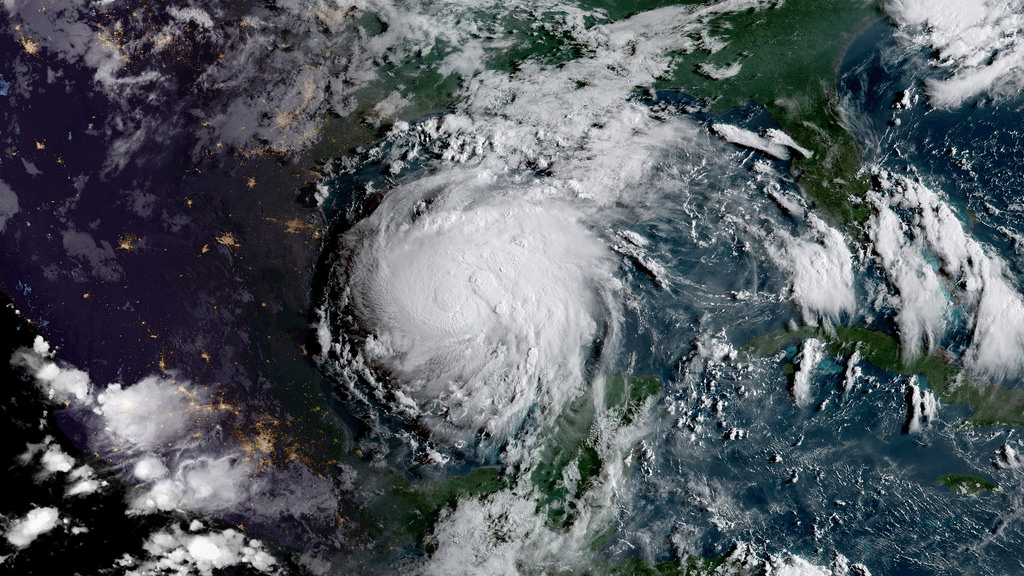Horrific health hazards lurking in Houston flood waters
08/31/2017 / By Isabelle Z.

The devastating flooding in the wake of Hurricane Harvey has been incredibly challenging for residents and emergency workers in Houston, and the situation could only get worse as the waters serve as a breeding ground for a host of dangerous organisms.
Experts from the CDC are warning that people should treat all the flood water as though it is contaminated. The flood waters that have already displaced thousands of people and are submerging homes contain a horrifying combination of sewage, chemicals, debris and heavy metals. Many illnesses in these situations result from septic systems and sewage treatment systems being unable to filter out human and animal fecal pathogens when they are flooded.
What is lurking in the water? It could be anything from mild gastrointestinal hazards like norovirus to the fatal micro-organism known as Vibrio vulnificus.
Found along the Gulf Coast, Vibrio is a type of flesh-eating bacteria that thrives in warm temperatures and is transmitted via food, water and open wounds. As local residents flee from floods, they can easily get cuts that allow the bacteria to enter their body.
Vibrio can cause problems like fever, diarrhea, and skin infections. However, in severe cases and among the immuno-compromised, it could result in the loss of limbs and even death.
A “perfect storm”
University of North Carolina at Chapel Hill Marine Sciences Professor Dr. Rachel Noble says that hurricanes, which are fed by warm water and leave behind standing water in their wake, are essentially a “perfect storm” for the Vibrio bacteria to thrive.
Mother Nature's micronutrient secret: Organic Broccoli Sprout Capsules now available, delivering 280mg of high-density nutrition, including the extraordinary "sulforaphane" and "glucosinolate" nutrients found only in cruciferous healing foods. Every lot laboratory tested. See availability here.
There were 22 cases of Vibrio after Hurricane Katrina, five of which were fatal. Officials are monitoring high levels of the bacteria in the area already. While Vibrio is considered low-probability and high-risk, it tends to cluster in these types of incidents. Making matters worse is the fact that an infection of Vibrio will progress quickly. Flood survivors are being urged to seek immediate treatment if they notice an open wound turning red and puffy or if they have a fever.
Even if you manage to escape Vibrio, there are other concerns, such as campylobacter, which causes diarrhea. Skin infections from staphylococcus, including the antibiotic-resistant variant known as MRSA, were reported after Hurricane Katrina and are also likely here. Salmonella poisoning is another possibility, as is enterovirus, which creates cold-like symptoms. There is also the risk of contracting the waterborne adenovirus, which can cause stomach and lung problems.
The situation is even worse for those who live near petrochemical plants, like those in Houston’s Manchester neighborhood. The Guardian reports that people in the area could come into contact with barium, arsenic and mercury from refineries in the flood waters.
Protecting yourself
It might be the last thing on your mind when you’re trying to escape to higher ground with bags full of your possessions, but you need to take every precaution to avoid infection as floodwaters can allow bacteria from the soil, manure and dust to enter the body quite easily.
If you have any open wounds, it’s best to avoid contact with floodwater if you can – which is, of course, far easier said than done in this case. If that’s not feasible or a wound accidentally comes into contact with the water, it should be cleaned with soap and warm water right away and treated with hydrogen peroxide if possible.
Experts say that the water might take days or even weeks to clear, so it is important that everyone is aware of the potential risks. Standing water serves as a breeding ground for mosquitoes, especially those that transmit viruses like West Nile, Zika, dengue and chikungunya.
Once the flood waters have started to recede, the danger has not passed. People will need to stick with filtered water for the foreseeable future. The surfaces inside of flooded homes must be cleaned with bleach, and residents need to be aware that mold and bacteria could grow in the water-damaged floors and walls of their homes, spurring respiratory problems and severe allergic reactions.
Sources include:
Tagged Under: cholera, flood dangers, Flooding, floodwater, Houston, Houston floods, Hurricane Harvey, infectious disease, mosquitoes, toxic chemicals, Vibrio, waterborne illness




















